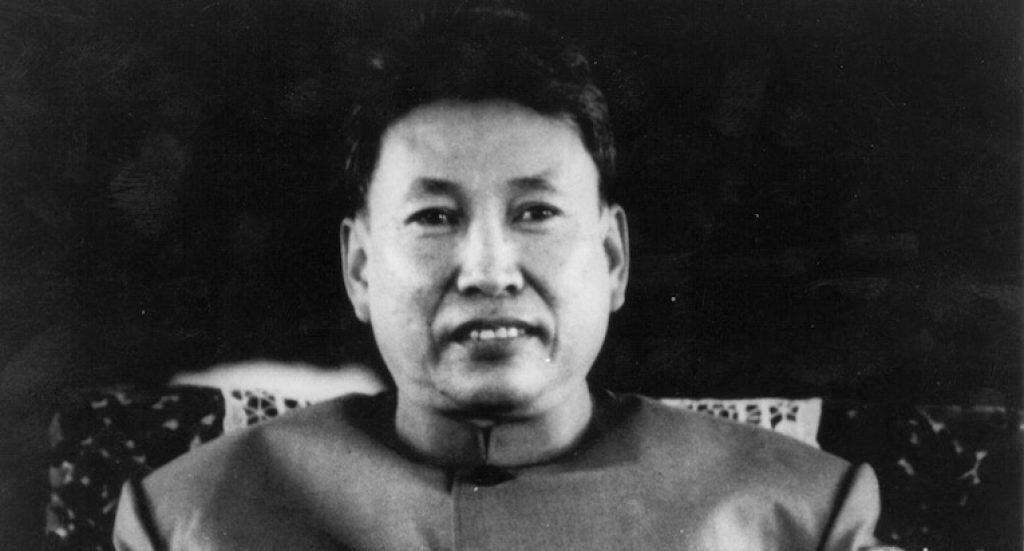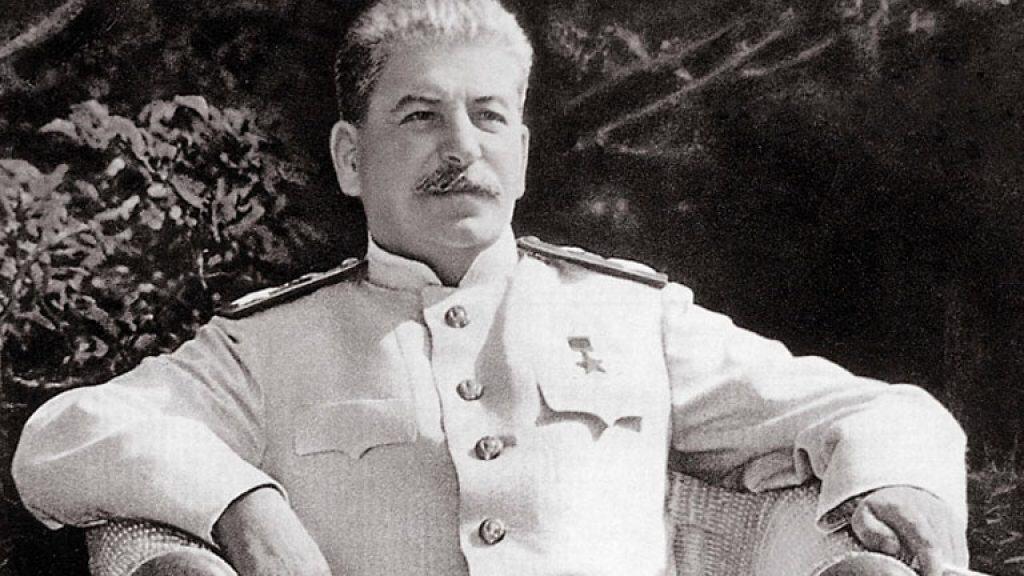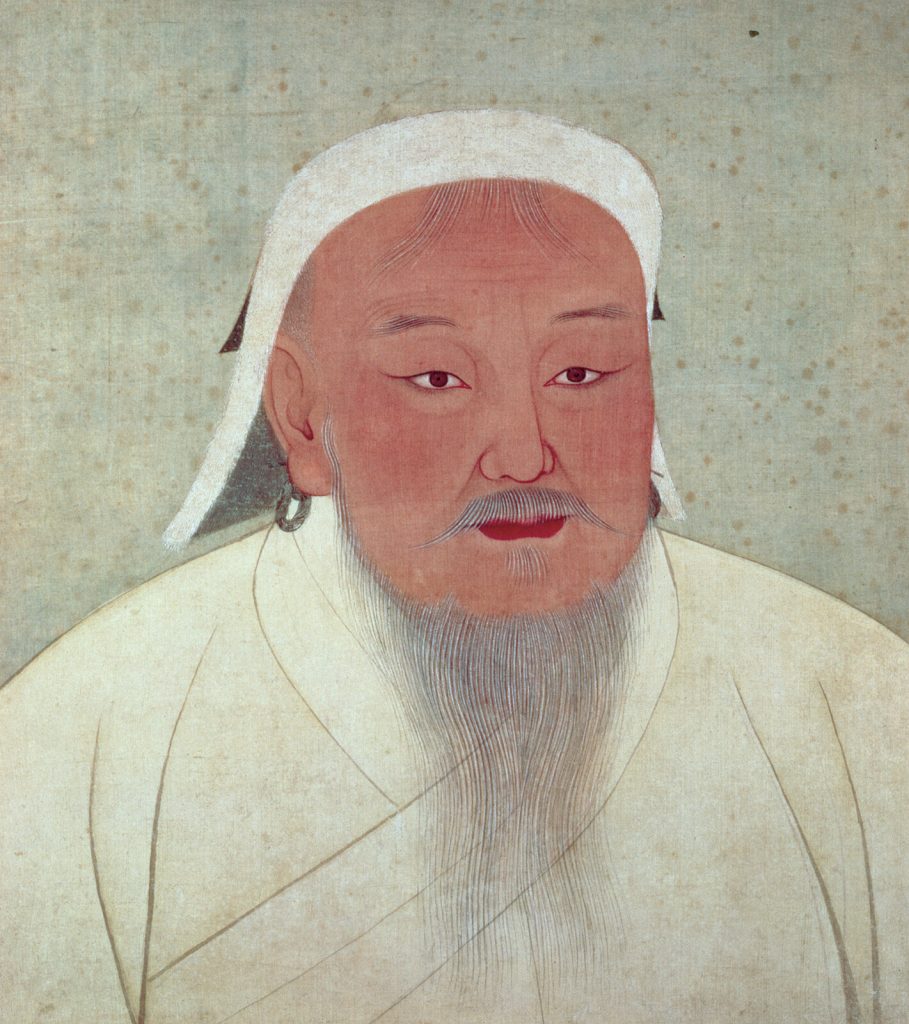As we read history, it soon becomes clear that power tends to corrupt. From ancient Greek times to the 21st century there appear to be more tyrannical rulers than those who held the welfare of the people paramount.

Ancient people knew this very well and were the first to coin the concept. In the ancient world, there was an ongoing fear of rulers who had their own selfish agenda. The ancient world was in constant search of honest and forthright leaders. Seldom were they found.
Whether we search the history of the ancient world, the world of the middle ages, or the world of the orient, we find evil men and women at the top. There has to be a reason for this. Psychologists talk about men in search of their emotional needs. Can we then quantify this search as it applies to those who will do anything, commit any crime, atrocity, or deception to reach their goal of ultimate control? Is there a fine thread that runs through the fabric of this type of personality? Psychology believes that there is.
Both the Greeks and Romans had words and concepts describing those who aspired not so much for leadership, but often pathological control. Even those who lived 60,000 years ago understood the need for strong leaders. They understood the concept of the unwritten social contract whereby members of a group surrendered their individual control for rules and regulations which benefited everyone.
Their leader ate the same food, had the same type of clothing, and the same type of living arrangements. There were no perks for the job, just a lot of added responsibility. It may have even been a thankless job.
Ultimately, society was so unwieldy that there became marked lines of demarcation between various members of a group. The spirit of cooperation and mutuality began to disappear. More and more there developed a class system. The strongest or the most clever began to demand special treatment and a better lifestyle than that which was available to the rank and file.
It is believed that the earlier groups saw themselves as a single entity. There was little in the way of competition or need to rise above anyone else because their individual needs were catered for automatically. In a relatively small group, this could be done. Since life was difficult, close harmony was the norm. Life or death depended on it.
It could be that we see the first of the psychological answers we are looking for. Certainly, there were those with innate skills. Some may have greater intelligence or could outperform in many ways. The overall conception of working in close harmony seemed to be the key to the success of the group. Over time when this was lost, when this gave way to divisions, then a competitive set of circumstances began to appear. The foundation of “dog eat dog” beliefs began to emerge.
Power is an Aphrodisiac
Moving the timeline forward, both in the Occidental and Oriental world, we began to see the advantages of being at the very top as something of extreme value. Why was this the case? The rich and powerful couldn’t buy air conditioners, fast cars or the many creature comforts and status symbols available today; it was much more of a personal feeling of aggrandizement and the gratification of lording over others and knowing that they held life and death in their hands. It has been said that power is a strong aphrodisiac. Although that might be true, many suspect that there is more to it than that. Long before the advent of Judeo/Christianity, there have been good people who applied logic to social concepts. Man has always made astute observations as it pertained to his world and to his fellowman. It was only when knowledge and observations were ignored that things began to go wrong. Moses had it right, people needed structure, guidelines, and road maps
Tyrants vs. Dictators
In ancient Greece, the word tyrant meant “ruler” and did not have negative connotations. It was not until the rulers or leaders began to take advantage of their rank in a negative sense that it then began to have undesirable connotations.
The word also became associated with both rulers and anyone else who had power over other people more and more in ancient times, the tyrant was more often than not, a person who took power illegally. It might have an overthrow of the existing government or some type of power play.
You May Also Like: Psychology of Forgers
This set in motion that which continues to exist to this day. It can be seen in the business world, in the government or in a wide variety of situations. People needing power for one reason or another, and this is what this study is all about – the psychology of tyrants.
There is also a distinction between a dictator and a tyrant. This distinction may be subtle but does exist. A case in point is Franco of Spain. He divided the country with the civil war, but after it was over, Spain began to thrive. The people had no problem in following him and most profited from it.
However, that having been said, it must be pointed out that many will follow even the worst of the worst. Pages and pages could be written about the neurotic who will follow a psychopath regardless of their marked manifestations of evil behavior.
Other dictators who were ruthless, but not necessarily tyrants included Salazar of Portugal, Mussolini of Italy, Castro, and even Napoleon Bonaparte who at times did evil things, but on the other hand, helped the French people in many ways. A dictator will imprison those who oppose him while a tyrant will kill them

Getting to the crux of the matter will enable us to proceed to a specific description of those individuals in history who have turned their world upside down in so far as the tyrants suffer from reality blindness. There is a psychological diagnostic classification called a psychopathic personality disorder now more correctly called a sociopathic personality. This presents a distinction between those who have a destructive component in their make up in and of itself and those with a total inability to relate to their world. Primitive man survived because of his ability to communicate on a positive level and have a firm understanding of the need for empathy. With time, this was lost and the entire human race suffered.
Some tyrants have a “character disorder” and it is a diagnostic classification of a lesser pathological severity. It is associated with the difficulty a person has on many levels of interpersonal relationships.
A good definition is “The term character generally refers to the extent of one’s virtuousness and social conscientiousness.” Can we expect a person to see life through the eyes of others? Can we expect fair play, honesty, reliability, and compassion? If we cannot, then we are dealing with a person who is totally absorbed in their individual needs and will set out to satisfy these needs regardless of the cost.
If in primitive societies, empathy had not been the hallmark for behavior, the human race would have died out.
Give and Take
What causes, or sets in motion, the behavior seen in the psychopathic or sociopathic individual? There is a theory that makes sense. The mother and prenatal form a single unity lasting for nine months. Both the physical and emotional satisfactions are provided for automatically.
At the time of birth, the infant is discharged from a warm and nurturing environment. It now has the task of understanding the concept of “you – the mother” and “me” a newly created entity who must learn to provide for itself as best it can. This can be a very slow process. It is vital that the mother or caregiver understands this and enables this new learning experience for the newborn to be as psychologically painless as possible. It can take many months for the infant to begin to feel safe and secure in this totally new environment of life outside the womb.
What would happen if this nurturing process did not occur or was cut short? What would happen if the mother died or was indifferent to the needs of the newborn? The infant would be unable to understand the “you” and “me” differentiation.
There is a high rate of infant deaths under these circumstances. If the infant lives, he has to develop the concept of the necessity of satisfying all of its needs on its own. It has to develop the concept of “me against the world.” There has now been set in motion a lifetime of beliefs that my needs will be satisfied. If I cry long enough and hard enough, someone will come to my aid. The infant begins to see itself as having to manage all on its own. There is no concept of give and take, of postponing immediate need satisfactions for satisfactions at a later date. They want what they want and demand immediate need gratifications.
In part, this is true with all babies and small children. But if they have been able to experience socialization in the form of meaningful communication with others, then they can begin to understand the concept of give and take. They can understand what sharing is all about.
The totally self-centered child can not do this. It is believed that these self-serving features are so deeply inculcated in the personality that they can never be modified. This is why the psychopathic personality disorder can not be treated successfully with psychological treatment, with medication, religion, or any other modality.
The tyrant is more often than not a sociopath or at best a character disordered individual. They can not relate to others, profit from experience, understand justice, the rule of law, or maintain meaningful interpersonal relationships. They often have major problems with their marriage or in their role as a parent. They will more likely fail as a business associate.
As we begin to look at the true tyrant in history, we need very much to know that all people have a myriad of emotional circumstances. There is never a single entity, a one size fits all diagnosis. There are infinite complexities when making an evaluation based on both physical and emotional conditions, but in all instances, a mature and psychologically healthy individual must have the ability to understand the needs or circumstances of others. Let alone the ability to live one’s life in a harmonious manner.
Hereditary Factor
There is the hereditary element being the son or daughter of a tyrant. Alexander The Great was an example. His father, Philip II was a tyrant and his mother was probably a very disturbed woman who did not have a firm hold on reality. Alexander was programmed to believe that he was a god and as such had no need for positive interpersonal relationships.

Throughout history, there have been examples of a young king coming to the thrown with an absolute belief in the world’s need to satisfy his or her every wish. With the power of life or death, it constantly reinforced this belief. Many believed in the concept that they were ordained by God.
Even in a benign form, we have examples of regal offsprings who had a character disorder. The sons of King George V and Queen Mary were badly neglected as infants but were given a double message. On one hand, you are inferior and unworthy, while on the other hand, you are regal and entitled to the very best in the way of goods and services. All of King Georges’s sons had emotional problems.
The son of Henry VIII was a real terror and this could be said for many other royal children. Again, they lacked the capacity to interrelate resulting from their own problems in understanding quid pro quo. If their early emotional needs were not met, then no amount of power or wealth can compensate. They spend their lives wanting more power and more of the material aspects of life.
Another example was the last Emperor of China, Puyi who craved material and emotional gratification in abundance. None of these people could relate to or even understand the common man.
As we review the lives of tyrants over the centuries, we will attempt to describe where their inability and capacity to understand and relate to others was the reason behind their behavior.
We also need to point out that there were physical conditions that contributed to their behavior. Limited intelligence, neurological problems, physical deformities also served to separate them from others. Many tried to overcompensate from what they believed were circumstances that worked against them. This overcompensation often took the form of very serious tyrannical behavior.
Social psychologists relate a litany of child abuse in Germany over the past hundred or more years. As a whole, children were treated harshly and were not given the love and affection that all creatures require. Not only did Adolf Hitler suffer from child abuse, but so did all other children of his generation. As a consequence, there was an entire generation of sociopaths. In many cultures, there have been examples of really bad people, but in Germany, there was observed tens of thousands of those who were maltreated as infants and children.
Hitler saw himself as rejected by his world. This perception reached a state of paranoia. One could perhaps understand why he hated people and acted as he did.
Ancient Spartan children were taken from their parents at a very young age to train and condition them to be warriors and learn how to kill people. This was a unique society and was in no way typical of the ancient world, but it served as a model for Nazi Germany.
Queen Elizabeth II was conditioned from birth to understand compassion, both individual and collective, loyalty, her vital role in the Commonwealth, and has followed her parents in a positive understanding of the needs of the British people.
Queen Elizabeth I lived in constant fear for her life. Who could she trust? This was a very heavy weight to carry and affected much of her behavior. She is an example of manifesting tyrannical behavior at times without being labeled as a tyrant.

I have selected a group of some of the more notorious tyrants in history to illustrate my beliefs in their psychological similarities. Namely, limited intelligence, feelings of insecurity, psychosis (especially paranoia), complete absence of empathy, a traumatic childhood, regal conditioning (a belief that they were chosen by God to rule), a need to overcompensate for feelings of inadequacy, and more than anything, their inability to understand cause and effect.
I have divided the group into two areas – Oriental and Occidental. The Asian cultures, both in ancient and modern times, has endemic certain beliefs that allow the people to accept that tyranny goes with their social structure The Greeks, on the other hand, knew the difference very well and were constantly fighting against injustice wherever it was found. The Chinese have had difficulty in doing this. Their acceptance has led to the existence of tyrants over the past 5,000 years who were brought down through revolt only after decades of suffering.
A Look at Some Tyrants
Ghengis Khan had been conditioned from childhood to be totally ruthless. It is said that he put to death over 100 million people. The concept of early conditioning is very important. One can raise a German Shepard to be gentle and loving, or to seek out and kill. Throughout Chinese history, there were no checks and balances in the value system that was observed in the Christian world. This fact alone gave rise to more tyrannical behavior than that which was seen in other parts of the world.
Both Mao Zedong and Shang Khi Chek were both tyrants based on the degree of destruction which was associated with both of them. They were allies when it came to fighting the Japanese, but after the war, both wanted total control of China. Both were ruthless in their desire for power. Mao was ultimately able to take control of all of China and set about in his attempt to create a communist state. Mao did not use good judgment and made many mistakes and along the way and put to death thousands of his opponents.
Pol Pot of Cambodia killed over 2 million people. He has been described as stupid and totally unrealistic.
In the western world, there have been people like Ivan The Terrible who was a strong military leader who generated into a tyrant motivated by a pathological obsession based on the hate of the Czar. Anyone whom he believed to be his enemy, whether they were or not were put to death by the thousands.
This was also true of Stalin reflecting a psychotic orientation. Stalin was short, pockmarked by smallpox, had a short left arm and was constantly on the defensive. He also had a troubled childhood and could kill anyone with impunity.
Nicolae Ceausescu was a great follower of Stalin. He wanted to outdo him in treachery. He was psychotic. He manifested his anger toward his own people and had no hesitation in killing anyone who spoke out against him.
Both the Haitian tyrants Papa Doc and Baby Doc Duvalier were psychotic. The son was conditioned by the father to be both ruthless and vicious. They were both considered to be stupid, paranoid and oblivious to the needs of the Haitian people.
Idi Amin was unintelligent. He had a myriad of resentments. He was constantly overcompensating for feelings of inadequacy and insecurity. He, too, could kill with impunity.
Muammar Gaddafi was out of touch with reality, and grandiose in the extreme. He had no respect for his own people and never needed an excuse to either kill or put someone in prison.
Saddam Hussein had no concept of the world outside of Iraq. He was a major tyrant in the middle east who killed thousands of his own people.

Choosing Future Leaders
So what is the thread that runs through the fabric of the personality of the tyrant, the psychological features in common and how can they be identified and stopped before they get started?
No major corporation will advance a middle management person to a vice president level without a very, very thorough evaluation of his past in order to anticipate his future performance.
You May Also Like: Shah of Iran: A Retrospective
Could we in America or the western world ever experience a tyrant in our midst? Yes, we could if we failed to take the necessary action to let it happen in the first place. America has many valuable checks and balances, but if they are ignored, we can blame no one else for the results.
What is the potential leader’s background in social interests? What is his background like with regard to his history of interpersonal relationships? Has he or she had many marriage failures. If this is the case, then what does this tell about his judgment, his understanding of the needs of others and his willingness to share?
A strong leader in today’s world often needs to be ruthless. He needs to be pragmatic. He needs to take very difficult decisions. This does not mean that he has to fail to understand the needs and circumstances of others. He must have well above intelligence and the ability to address issues with logic.
Plato said, “We get the type of government we deserve” Man working as a single entity can wield great power, but man does not work as a single entity. The greed, rejection of the concept of unity, will play into the hands of the potential tyrant every time.
It is hoped that as members of the human race, we can go back 60,000 years and begin to emulate the social concepts that were then apparent and begin to see ourselves in a more collective sense than the dangerously competitive world in which we find ourselves today. It is this that enables tyrants to take control.